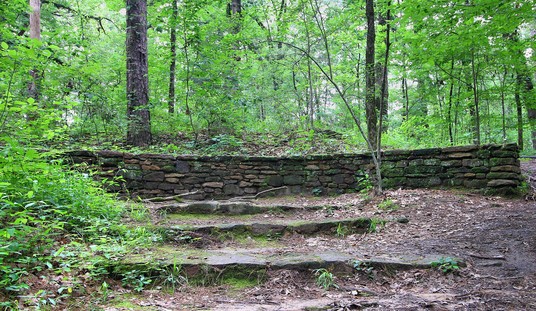Return with us now to the apogee of hopenchange, Barack Obama’s inauguration day in January of 2009. Back then, the BBC reported on Yo-Yo Ma and Itzhak Perlman miming their instruments to a piece of recorded music, rather than risk playing live in the bitter cold global warming that the city succumbed to day, as a sort of foreshadowing metaphor of the POTUS’s love of the TOTUS.
Today, Mark Steyn, links at the Corner (along with the headline above) to NRO contributor Lee Habeeb, who also flashes back to Barack Obama’s inauguration, with an emphasis on the words written by Woodie Guthrie and sung by Pete Seeger and Bruce Springsteen:
What most Americans don’t know is that Guthrie didn’t like Irving Berlin’s “God Bless America” and wrote “This Land Is Your Land” as a rebuttal.
What most Americans also don’t know is that Guthrie didn’t like his own country and wanted to fundamentally transform it along the lines of his heroes, Marx and Lenin.
And what most Americans had never heard until that day in Washington, D.C., was a stanza that is typically left out of public presentations of “This Land Is Your Land” because it is so radical. The lines are as radical as the writer himself, who dedicated his life to the overthrow of capitalism and private-property rights.
Hope and change were in the air that cold winter day, and Seeger and Springsteen figured it was time for America to hear the rarely performed stanza.
There was a big high wall there that tried to stop me,
A great big sign there said, “private property”;
But on the back side, it didn’t say nothin’;
That side was made for you and me.No wonder we’ve never heard that stanza. It changes Guthrie’s song from a celebration of America into a bitter indictment of a nation built on unjust private-property rights.
This past weekend, perhaps when “Miami” Steve Van Zandt, Springsteen’s guitarist referred to England as a “police state” for the city of London shutting off their power on Saturday when they blew past a previously agreed-upon curfew, he meant it as a compliment. Presumably, Bruce would, right?
(Seeger likely would have as well at some point in his career; for much more on him, don’t miss Howard Husock’s 2005 City Journal article on “America’s Most Successful Communist.”)










Join the conversation as a VIP Member